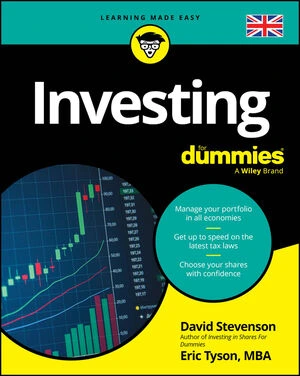Understanding the behavioral finance aspect of factor investing, as well as how great investors have dealt with it in the past, can make you an even better investor.
Knowing your adversary
The single most important factor that will determine your portfolio returns and success as an investor is between your ears. It’s your temperament!
If your past investing ventures felt like living in the movie “Groundhog Day,” where, despite your best efforts, things just keep repeating themselves, it’s likely that your number one obstacle to success is you, and more specifically, your brain.
So why do so many smart investors shoot themselves in the foot repeatedly?
An amygdala hijack refers to the flight-or-fight response that takes place when you are faced with a perceived threat. It’s the “cave-dweller” part of our brains controlling our response, cycle after market cycle.
One of the fundamental assumptions in modern portfolio theory is that investors are rational in their decision making. Asset allocation, used by most modern advisors, is based on modern portfolio theory.
However, what we know now is that the assumption of rationality underlying the theory is not valid: People are not rational in their decision making.
What this means is that there will always be mispricings in the market, and that a lot of market movement is and will continue to be irrational.
Panicking on market drops is for amateurs. Your time is better spent creating and sticking with a good factor portfolio.
Get professional help if you need it
Behavioral investing is part of behavioral finance and one of the most important developments of the last decade or so.
The emerging behavioral finance field is based on the recognition that investor behavior is perhaps more important than portfolio design and most other metrics. After all, the best portfolio in the world cannot perform if investors insist on selling (in fear) every time it dips, and buying more (greed) every time it goes up.
Behavioral finance recognizes that saving and investing behavior accounts for the lion’s share (87 percent) of portfolio growth (the other 13 percent of portfolio growth is market timing, asset allocation, and investment selection) and equips advisors with a systematic, sophisticated, approach to help clients manage their emotions and their decision making and investing behavior.
The BFA professional designation shown in the figure equips advisors with a systematic, sophisticated approach to help clients manage their emotions, decision making, and investor behavior to achieve improved outcomes.
Mastering your emotions is a key part of investing success. If you need help, consider hiring a good financial advisor who also carries the BFA professional designation.
Automating your investing
One powerful and often overlooked way to control negative investment behavior is to take advantage of features that allow you to put things on autopilot.
Once you’ve decided on a portfolio (using your factor knowledge), you can automate your additions.
Most brokerage platforms offer the ability to sweep an amount of money (say $500 per month) in from your checking account and to automatically purchase the exchange-traded funds (ETFs) or funds you’ve chosen, in the proportion you’ve decided on.
Soon, adding to your wealth becomes a good habit for you, just like paying your bills on time, and you’re taking advantage of dollar cost averaging as well to obtain better prices over time.
Another subtle, but very powerful, aspect of automatic contributions is that you train yourself to pay yourself first. You make wealth building a part of life that comes before travel, new toys, and all the other things you might be tempted to spend your money on. You never think of that money as discretionary income because it is already spoken for.
Here are a few of the online brokerage platforms that offer automated contributions:
- Ameritrade
- Etrade
- IBKR (Interactive Brokers)
- Fidelity
- TradeStation
- Ally
- SoFi
- Robin Hood
- Charles Schwab
- Webull
- Firstrade
As always, be sure to do your own due diligence to inquire about any fees or minimums that may exist.
Investor behavior reminders from great investors
Legendary investors over the last century have all identified behavioral investing as absolutely crucial to their success.
Studies show that many of them were using their own versions of factor investing, but regardless of which methodology they were using, all of them had mental reminders to help keep them on the path to success.
These pithy sayings or aphorisms are easy to remember and contain essential truths about investor success and behavior.
Below are a few of them from Warren Buffett. You can easily find other sayings from famous investors, like John Templeton and John “Jack” Bogle, on the Internet.
Famous quotes from Warren Buffet:
- “I will tell you the secret to getting rich on Wall Street. You try to be greedy when others are fearful. And you try to be fearful when others are greedy.”
- “Success in investing doesn’t correlate with IQ. Once you have ordinary intelligence, what you need is the temperament to control the urges that get other people in trouble investing.”
- “The New York Stock Exchange is the only store in the world where consumers sell stuff when it goes on sale.”






